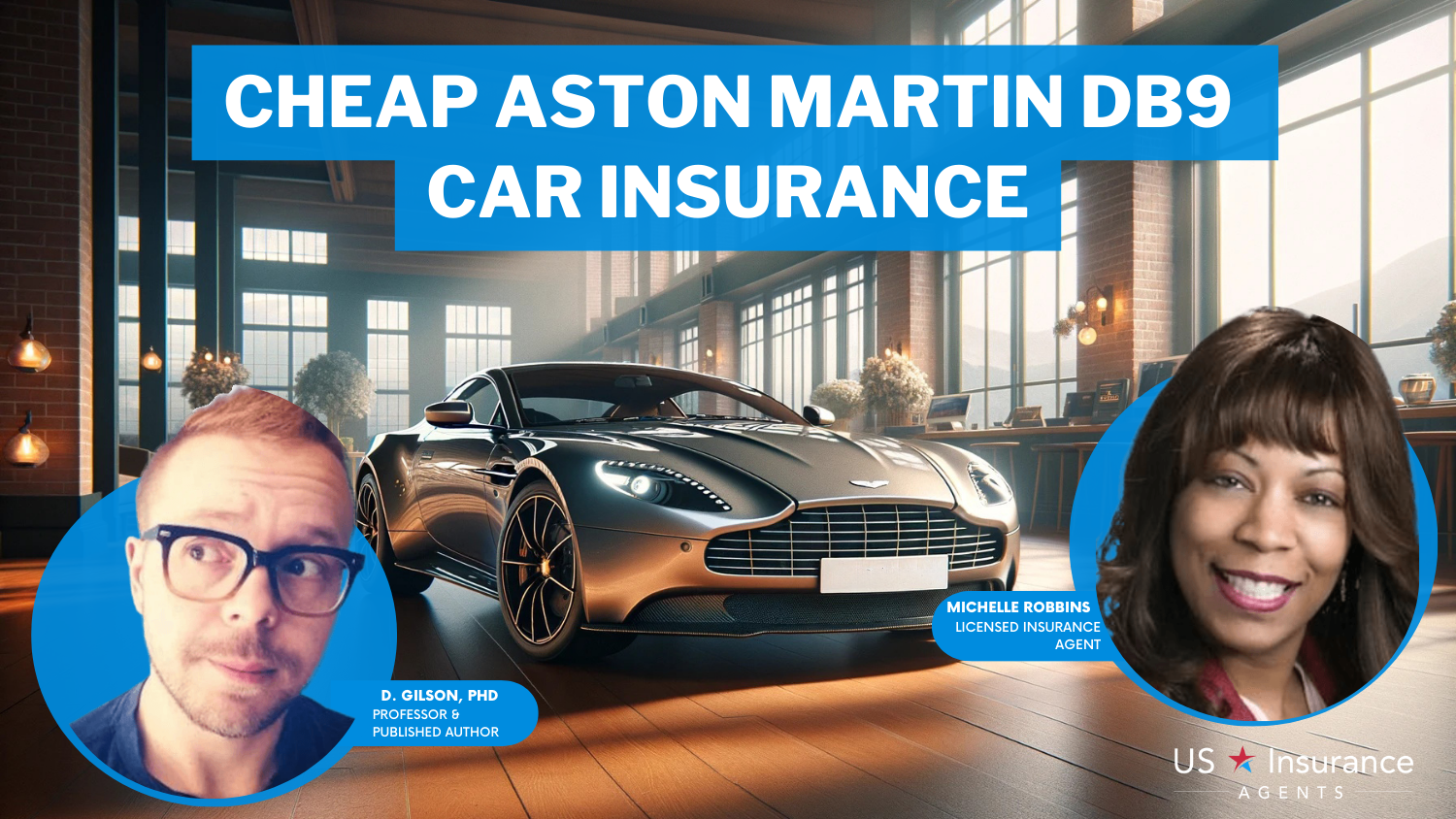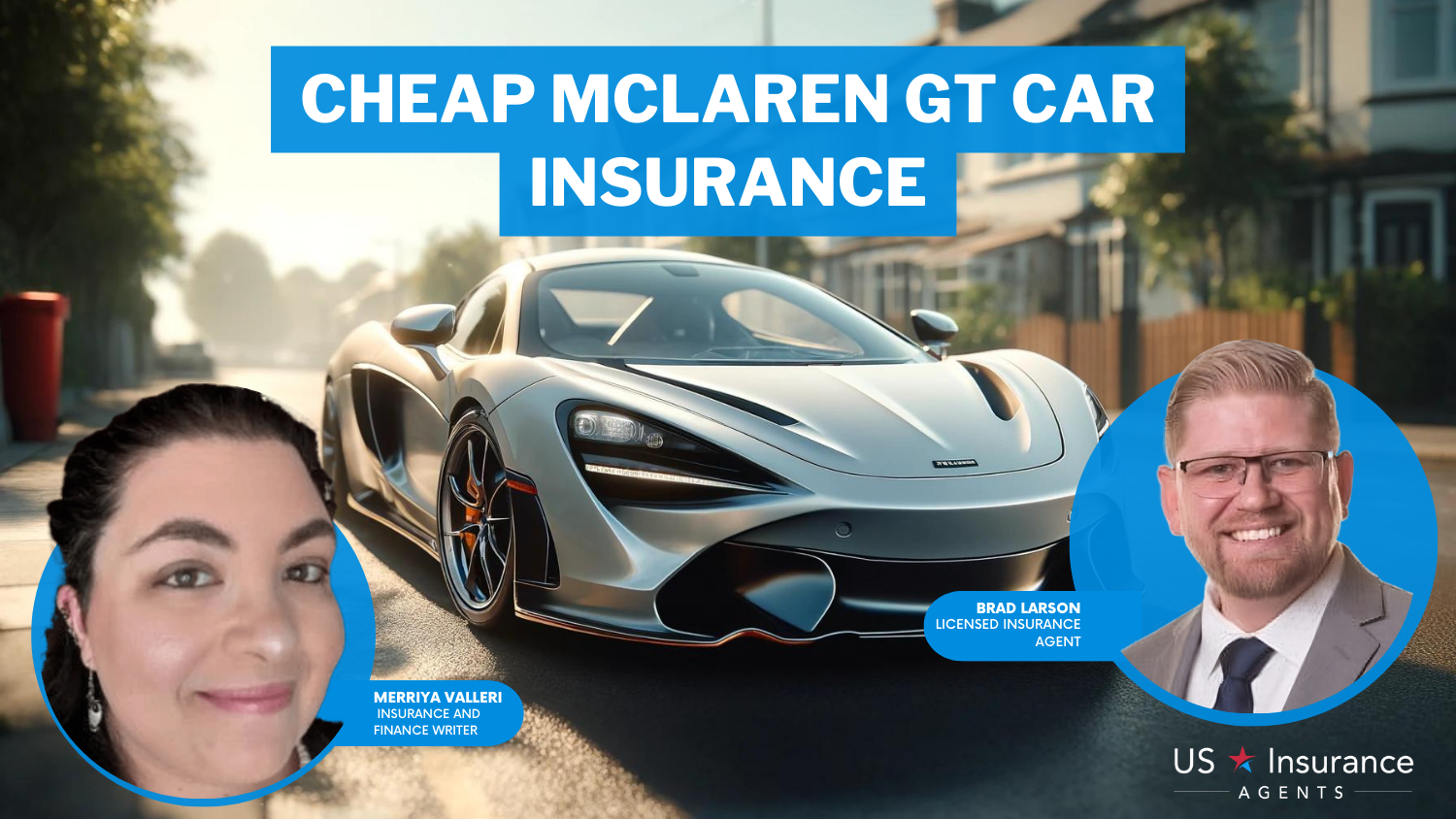Does my car insurance cover damage caused by a lightning strike?
Understanding Lightning Strikes: Unveiling the Truth about Car Insurance Coverage for Lightning-Induced Damage
Secured with SHA-256 Encryption





Table of Contents
Table of Contents


Professor of Nutrition & Kinesiology
Melissa Morris has a BS and MS in exercise science and a doctorate in educational leadership. She is an ACSM certified exercise physiologist and an ISSN certified sports nutritionist. She teaches nutrition and applied kinesiology at the University of Tampa. She has been featured on Yahoo, HuffPost, Eat This, Bulletproof, LIVESTRONG, Toast Fried, The Trusty Spotter, Best Company, Healthl...
Melissa Morris


Sr. Director of Content
Sara Routhier, Senior Director of Content, has professional experience as an educator, SEO specialist, and content marketer. She has over 10 years of experience in the insurance industry. As a researcher, data nerd, writer, and editor, she strives to curate educational, enlightening articles that provide you with the must-know facts and best-kept secrets within the overwhelming world of insurance....
Sara Routhier


Commercial Lines Coverage Specialist
Michael Vereecke is the president of Customers First Insurance Group. He has been a licensed insurance agent for over 13 years. He also carries a Commercial Lines Coverage Specialist (CLCS) Designation, providing him the expertise to spot holes in businesses’ coverage. Since 2009, he has worked with many insurance providers, giving him unique insight into the insurance market, differences in ...
Michael Vereecke
Updated January 2025
If you’re a car owner, you probably worry about the various risks and dangers that can damage your vehicle. One such concern that may come to mind is whether or not your car insurance covers damage caused by a lightning strike. In this article, we will explore the ins and outs of car insurance coverage and its implications on lightning damage. We will also provide tips on how to protect your car from lightning strikes.
Understanding Car Insurance Policies
Before delving into the specifics of lightning damage coverage, it’s important to have a general understanding of car insurance policies. Car insurance typically consists of several different types of coverage, each serving a different purpose. The most common types of coverage include liability, collision, and comprehensive coverage.
Liability coverage is the most basic type of car insurance and typically covers damages and injuries to other parties in the event that you are at fault in an accident. This coverage is essential because it helps protect you financially if you cause harm to others while driving. It can help pay for medical expenses, property damage, and legal fees if you are sued as a result of an accident.
Collision coverage, on the other hand, protects your own vehicle in the event of a collision with another vehicle or object. Whether it’s a fender bender or a more serious accident, collision coverage can help cover the cost of repairing or replacing your vehicle. This coverage is especially important for newer or more valuable vehicles, as the repair or replacement costs can be significant.
What is Comprehensive Coverage?
Comprehensive coverage is an optional type of car insurance that protects against damage to your vehicle caused by non-collision incidents. This includes natural disasters, theft, vandalism, and yes, even lightning strikes. Unlike liability and collision coverage, comprehensive coverage is not required by law. However, it is highly recommended for car owners who want to protect their vehicles from a wide range of potential risks.
Comprehensive coverage provides peace of mind by offering financial protection against various perils that can damage or destroy your vehicle. If a tree falls on your car during a storm, comprehensive coverage can help cover the cost of repairs. If your car is stolen, comprehensive coverage can help reimburse you for the value of your vehicle. And if lightning strikes your car, comprehensive coverage can help pay for the necessary repairs to get your vehicle back on the road.
In addition to natural disasters, theft, vandalism, and lightning strikes, comprehensive coverage also typically includes coverage for fire damage, damage from falling objects, damage from riots or civil disturbances, and damage from hitting an animal. It’s important to carefully review your policy to understand the specific perils covered under your comprehensive coverage.
The Basics of Liability and Collision Coverage
While liability and collision coverage are essential components of a car insurance policy, it’s important to note that neither of these coverages will protect against damage caused by a lightning strike.
Liability coverage focuses on protecting you financially if you cause harm to others while driving, while collision coverage focuses on protecting your own vehicle in the event of a collision. However, these coverages do not extend to incidents like lightning strikes, which fall under the realm of comprehensive coverage.
It’s important to understand the limitations of your car insurance policy and consider adding comprehensive coverage if you want to protect your vehicle against a broader range of risks. While lightning strikes may be relatively rare, the potential damage they can cause to your car can be significant. By having comprehensive coverage in place, you can have peace of mind knowing that you’re financially protected in the event of a lightning-related incident.
Free Auto Insurance Comparison
Compare Quotes From Top Companies and Save
Secured with SHA-256 Encryption
The Impact of Lightning Strikes on Cars
While lightning strikes on vehicles are relatively rare, they can cause significant damage when they do occur. The electrical current from a lightning strike can damage various components of a car’s electrical system, including the battery, alternator, and other sensitive electronics. In some cases, the resulting damage can render a car inoperable or even lead to a fire.
Imagine driving down a quiet country road on a stormy summer evening. The rain is pouring, and thunder rumbles in the distance. Suddenly, a blinding flash of lightning streaks across the sky, followed by a deafening crack. Your heart skips a beat as you realize the lightning strike was dangerously close to your car.
How Lightning Can Damage Your Vehicle
When lightning strikes a vehicle, it travels along its metal frame and seeks out conductive pathways. This can result in electrical surges that damage sensitive electronic components within the car. The delicate circuitry that powers your car’s engine, lights, and entertainment system is no match for the immense power of a lightning bolt.
As the lightning surges through your car’s electrical system, it can cause havoc. The battery, which provides the necessary power to start your engine, can be completely drained or even destroyed. The alternator, responsible for charging the battery and powering the car’s electrical systems while the engine is running, can also be severely damaged.
The consequences of a lightning strike on your car can extend beyond the electrical system. The intense heat generated by a lightning strike can melt or ignite certain parts of the vehicle, leading to further damage. The rubber tires, designed to provide traction and a smooth ride, can be scorched or even set ablaze. The paint on the car’s exterior may blister or peel due to the extreme temperatures.
The Probability of a Lightning Strike on Your Car
The likelihood of a lightning strike directly hitting your car is extremely low. Lightning tends to strike taller objects, such as trees or buildings, rather than smaller objects like cars. The metal frame of a car does not attract lightning in the same way that a tall structure would. However, it’s still possible for a lightning strike to indirectly impact your vehicle if it strikes nearby and causes a power surge or other electrical disturbance.
When lightning strikes a nearby object, the electrical energy can travel through the ground and reach your car through the tires or other conductive elements. This can result in a power surge that can damage the car’s electrical system. Modern cars are equipped with various safety features, such as surge protectors and grounding systems, to minimize the risk of damage from indirect lightning strikes.
It’s important to note that even if your car is not directly struck by lightning, being in close proximity to a strike can still have consequences. The electromagnetic field generated by a lightning bolt can interfere with the electronic systems of your car, causing temporary malfunctions or even permanent damage. In some cases, the effects may not be immediately noticeable, but can manifest later as intermittent electrical issues or system failures.
So, while the probability of a lightning strike directly hitting your car is low, it’s still essential to understand the potential risks and take precautions during thunderstorms. Parking your car in a garage or under a covered structure can provide some level of protection. If you find yourself caught in a storm while driving, it’s advisable to pull over in a safe location and wait for the storm to pass before continuing your journey.
Does Car Insurance Cover Lightning Damage?
As mentioned earlier, comprehensive coverage is the type of insurance that typically covers damage caused by a lightning strike. So, if you have comprehensive coverage, you can rest assured knowing that your car insurance will likely cover lightning damage. However, it’s always important to review your policy and consult with your insurance provider to fully understand the specifics of your coverage.
The Role of Comprehensive Coverage in Lightning Damage
Comprehensive coverage extends beyond just lightning damage. It also protects against other non-collision incidents such as theft, vandalism, falling objects, and natural disasters like hurricanes or floods. It’s important to note that comprehensive coverage usually comes with a deductible, which is the amount you’ll need to pay out of pocket before your insurance kicks in.
When it comes to lightning damage, comprehensive coverage can be a lifesaver. Lightning strikes can cause significant damage to a vehicle, ranging from electrical system malfunctions to structural damage. Without comprehensive coverage, you may be left with a hefty repair bill.
Imagine this scenario: you’re driving home on a stormy night when a bolt of lightning strikes your car. The sheer force of the strike causes your vehicle’s electrical system to short circuit, leaving you stranded on the side of the road. In this situation, having comprehensive coverage can provide you with peace of mind, knowing that your insurance will likely cover the cost of repairs.
Situations When Insurance Might Not Cover Lightning Damage
While comprehensive coverage generally covers lightning damage, there are some situations where insurance may not provide coverage. For example, if it’s determined that the damage was a result of improper vehicle maintenance or negligence, your claim could be denied. It’s crucial to follow the recommended maintenance guidelines for your vehicle to ensure that you’re covered in the event of lightning damage.
Additionally, it’s important to note that insurance policies may have certain limitations or exclusions when it comes to lightning damage. For instance, some policies may exclude coverage for damage caused by power surges that result from lightning strikes. It’s essential to carefully review your policy and discuss any potential limitations with your insurance provider to fully understand your coverage.
Another factor to consider is the age and condition of your vehicle. If your car is older or has pre-existing damage, insurance companies may argue that the lightning strike only exacerbated existing issues rather than causing new damage. In such cases, your claim may be subject to further scrutiny, and the coverage provided by your insurance policy may be limited.
Ultimately, it’s crucial to have a clear understanding of your car insurance policy and the coverage it provides for lightning damage. By reviewing your policy, consulting with your insurance provider, and following proper vehicle maintenance guidelines, you can ensure that you’re adequately protected in the event of a lightning strike.
Filing a Claim for Lightning Damage
If your vehicle sustains damage from a lightning strike, it’s important to know how to file an insurance claim properly. Here are the steps you should take:
- Contact your insurance provider as soon as possible to report the damage and initiate the claims process. Provide them with all the necessary information, including photos of the damage, if possible.
- Follow any instructions given by your insurance provider. This may include obtaining estimates for repairs, providing additional documentation, or arranging for an adjuster to inspect the damage.
- Keep detailed records of any communication with your insurance company, including dates, times, and the names of the individuals you speak with.
- Cooperate with the claims adjuster throughout the process. They may need to inspect your vehicle or gather additional information to finalize your claim.
- Once your claim is approved, you can proceed with the necessary repairs to your vehicle. Depending on your policy, you may have the option to choose your preferred repair shop.
What to Expect After Filing a Claim
After filing a claim for lightning damage, your insurance provider will review the details of your claim and determine its validity. This process may take some time, so it’s important to be patient. Once your claim is approved, your insurance company will typically arrange for payment to cover the cost of repairs, minus your deductible. It’s always a good idea to review your policy and consult with your insurance provider to ensure you fully understand the claims process.
Free Auto Insurance Comparison
Compare Quotes From Top Companies and Save
Secured with SHA-256 Encryption
Protecting Your Car from Lightning Strikes
While the probability of a lightning strike directly hitting your vehicle is low, there are steps you can take to minimize the risk and protect your car:
Safety Measures to Avoid Lightning Strikes
If you’re caught in a thunderstorm, it’s important to stay inside your vehicle, as it acts as a safe shelter. Avoid touching any metal surfaces within the car, as lightning can travel through conductive materials. You should also refrain from using electronic devices or touching the ignition, as this can increase the risk of electrical shock in the event of a lightning strike.
Additional Protection Options for Your Vehicle
To provide added protection against lightning damage, you may consider investing in a lightning protection system or a surge suppressor device for your car. These devices help divert electrical surges away from sensitive components, reducing the risk of damage. Additionally, parking your car in a garage or under a covered area during thunderstorms can further minimize the risk of lightning strikes.
In conclusion, if you have comprehensive coverage, your car insurance is likely to cover damage caused by a lightning strike. However, it’s essential to review the specifics of your policy and consult with your insurance provider to ensure you have adequate coverage. Remember to follow proper safety precautions during thunderstorms and consider additional measures to protect your vehicle from lightning damage. Stay informed and prioritize the safety of your car to enjoy peace of mind on the road.
Frequently Asked Questions
Does my car insurance cover damage caused by a lightning strike?
Yes, most comprehensive car insurance policies cover damage caused by a lightning strike.
What types of damage caused by a lightning strike does car insurance typically cover?
Car insurance typically covers damage to the vehicle’s electrical system, engine, and any other parts directly affected by the lightning strike.
Do I need to have comprehensive car insurance to be covered for damage caused by a lightning strike?
Yes, comprehensive car insurance is usually required to be covered for damage caused by a lightning strike. Liability-only policies typically do not cover this type of damage.
Will my car insurance cover damage caused by a lightning strike if the vehicle was not in use at the time?
Yes, car insurance usually covers damage caused by a lightning strike regardless of whether the vehicle was in use or parked at the time.
Are there any exclusions or limitations to coverage for damage caused by a lightning strike?
Some car insurance policies may have certain exclusions or limitations for damage caused by a lightning strike. It is important to review your policy or consult with your insurance provider to understand any specific terms or conditions.
What should I do if my car is damaged by a lightning strike?
If your car is damaged by a lightning strike, you should contact your insurance provider as soon as possible to report the incident and initiate the claims process. They will guide you through the necessary steps to assess the damage and arrange for repairs.
Will my car insurance rates increase if I make a claim for lightning strike damage?
Making a claim for lightning strike damage may or may not impact your car insurance rates. It depends on various factors, including your insurance provider’s policies and the circumstances surrounding the claim. It is advisable to discuss this with your insurance provider directly.
Get a FREE Quote in Minutes
Insurance rates change constantly — we help you stay ahead by making it easy to compare top options and save.


